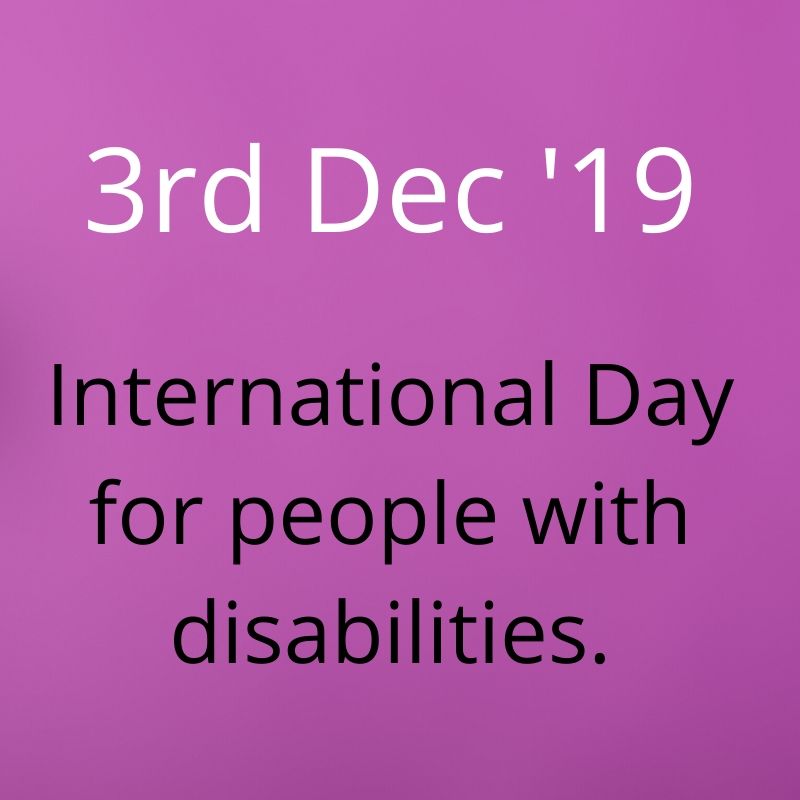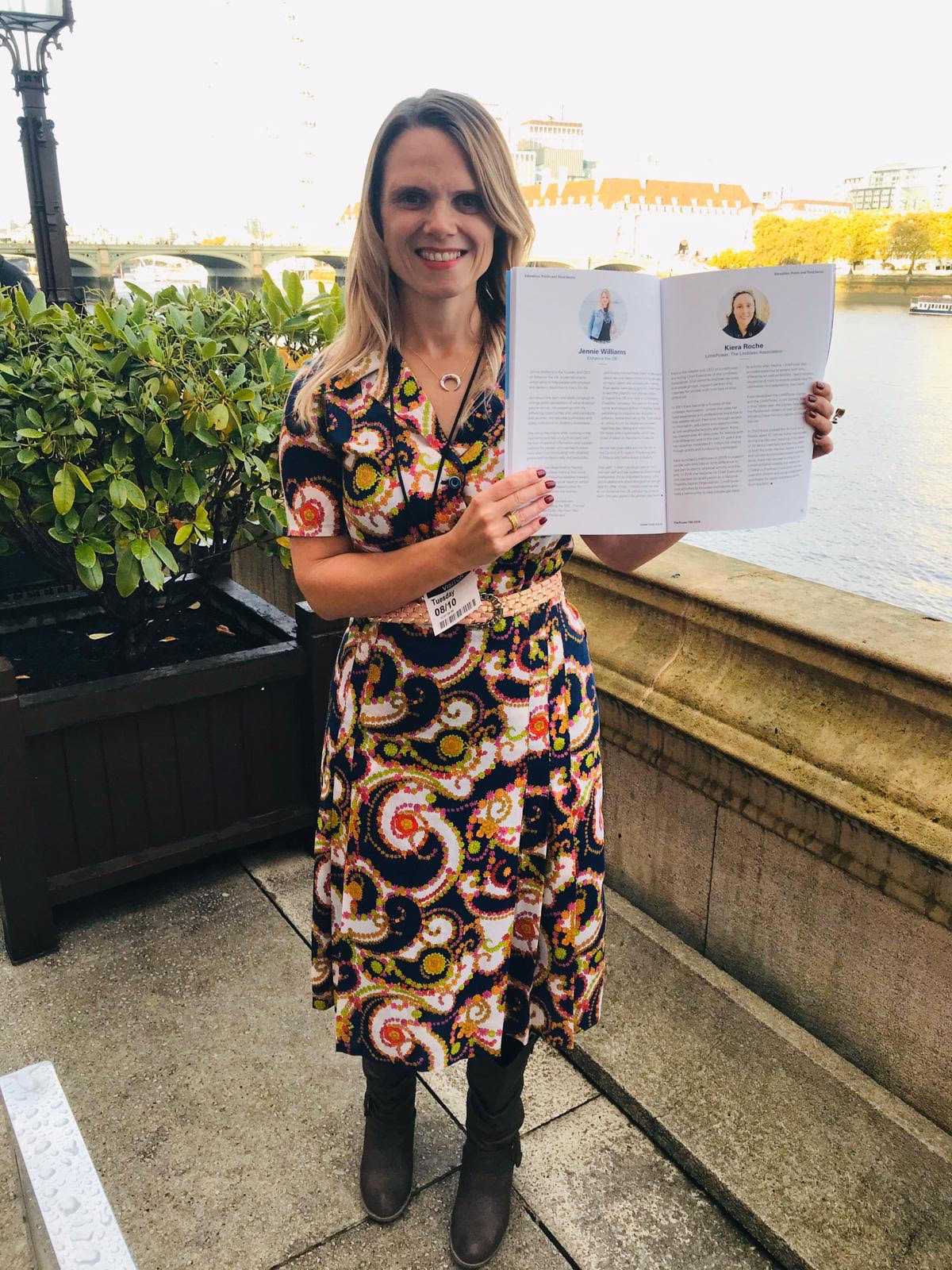
Apply here: How to make your application process more inclusive.
Job interviews and applications are never fun, but they can be extra hard for those with neurodiverse conditions. Neurodiversity can also include autism, Tourette’s syndrome, ADHD, dyslexia and dyscalculia.
Many job interview processes are not designed with neurodiverse people in mind. There are so many benefits to hiring people with neurodiversity including their creativity. However, businesses need to make sure that they are not putting these candidates off before they even start the interview process.
 As a person with ADHD, I have stopped mid-application and quit because I can tell by the form I’m reading that it’s not worth my time. Things like timed tasks and math tests may sound like a good way to test candidates but what they tell me is that you are going to be a nightmare to work for as a neurodiverse person.
As a person with ADHD, I have stopped mid-application and quit because I can tell by the form I’m reading that it’s not worth my time. Things like timed tasks and math tests may sound like a good way to test candidates but what they tell me is that you are going to be a nightmare to work for as a neurodiverse person.
If you don’t facilitate people who think differently at this stage, why should I have confidence you will later on?
Here are seven ways to make your job posting and process neurodiverse friendly:
1 – Simplify your questions
It can be tempting to ask a series of questions in one go to save time when interviewing. However, this can be confusing for neurodiverse people to work out where the emphasis is.
An example – how long did you work at your last job and can you describe the role while outlining your successes there? I have no idea what part is the most important bit for me to answer. I’m also likely to be nervous causing me to forget what I’m trying to say.
Slow the questions down, keep them brief and ask each one individually so I stand a chance.
2 – Simplify the job advertisement
Confession time: I don’t read advertisements the entire way through. The simple reason is that my ADHD skim reads and won’t let me focus on reading all of it. I cherry-pick what I need to know which is often what the salary is and where the job is.
Longer job applications lose the majority of readers who get bored and give up but in particular those with ADHD. I cannot force myself to read through it even if I wanted to.
Keep it short and simple by listing what I need to know (salary, main responsibilities, location) but get rid of the fluff (who cares if you have a pizza Friday)
I can get the rest if I get the job.
Another issue here is self-esteem. A lot of neurodiverse folk, myself included, have low self-esteem stemming from years of hearing negativity around our symptoms. For me this has lead to the ‘I can’t do that’ reactions to overly demanding job descriptions.
The higher you list a skill setlist that you potentially do not need then the more I assume I’m not on it.
3 – Remove the tests and assignments
I recently applied for a role as a children’s book editor which was a departure from journalism. I thought it would be a nice change but still grounded in my experience. The role was entry-level so it reflected that. However, what I got back after I submitted my CV was a list of 5 tasks that I needed to complete to set deadlines, including one that was over 1000 words.
While I did the assignments, I had to let paid assignments go to accommodate, I was tired as I did it during my lunch breaks and at night after work. I didn’t even get an interview after all of that because it was rushed and not my best work. The panic and mental time I spent on this was incredibly draining.

Another company that I worked for in the past asked me for a math test for a design job before I even submitted my CV. The irony of sitting beside my portfolio I had created for them while I exited the interview was not lost on me.
You will lose people before you even start the application process by asking us to complete tasks like this. Deadlines can be difficult for some neurodiverse people, especially those with ADHD.
My brain doesn’t process sequences quickly so while I can do the task, I can’t do it as quickly as someone who is neurotypical can. That creates a barrier automatically without me even having to make it to the interview. To be honest if I see a timed test in an application, I opt myself out immediately.
4 – Have an itinerary and stick to it
Going into a job interview and not knowing what is going to happen is another huge worry for neurodiverse people. While things happen and it may not be possible to stick to an itinerary, it can eliminate a lot of the panicking we go through in the run-up to a big interview.
We are already using a lot of our mental energy in ways that neurotypical folk aren’t in just preparing to go into a new environment. It helps to know as much as we can in advance. Including who we need to ask for, what room we need, the address of the office and also how long this is going to take.
Sending interview questions ahead of time can also help us to prepare ourselves. I am not great at answering on the spot even though I know the answers or have done the work. It creates a huge panic for me in which I will miss the key parts even though I know them. If you give me a chance to prepare for the interview then I can make sure that I have all of the answers you need ahead of time.
5 – Offer the option for an early interview
I always schedule things in the morning despite how I know I will feel on the actual day. My brain is better first thing when I haven’t had a whole day to sit panicking about what’s going to happen. If that is the case then I will overcompensate by being hours early or late.
Dopamine, according to studies, is released in large amounts in the morning when we wake up. ADHD brains are low in dopamine so we spend a lot of time trying to find sources to give ourselves that boost. So it makes sense that we function better in the morning because that’s when we have the highest amount of the low dopamine levels we have.
6 – Understand that disclosure can be terrifying
Forms that ask people to disclose their gender, sexuality or disability can be scary and confusing. I hate filling them in because ADHD is not classed as a disability so I technically don’t have to say that I have it. I am a gay non-binary person too so I panic when ticking boxes that this will go to an office where this will not be treated with discretion.
These forms are often attached to interview applications as a way to monitor diversity in the application process. Yet, for many of us, we don’t fit neatly into the boxes or we panic about the boxes we have to tick.
7 – Quieten the room down
Interviews may take place in rooms that are not designed to be ADHD-friendly. The sound of the clock, the rain outside, the person on the desk near me or even smells can be overwhelming.
No matter what I do to make myself concentrate, I will turn to look at things.
‘Seemingly distracted’ can also apply to direct eye contact which I also struggle with. I cannot hold eye contact easily especially when it comes to strangers.
In an interview being understanding of this goes a long way. Allowing fidget toys, taking notes, or not penalising me for ‘seeming distracted’ if I do break from concentrating. Taking the time to interview someone in a quiet room can also help them to feel a bit more relaxed and able to focus.
Read more about standard adjustments for interviews










